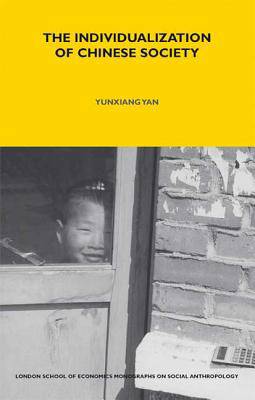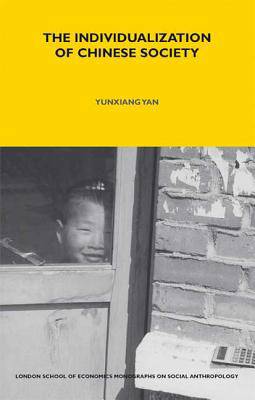
Bedankt voor het vertrouwen het afgelopen jaar! Om jou te bedanken bieden we GRATIS verzending (in België) aan op alles gedurende de hele maand januari.
- Afhalen na 1 uur in een winkel met voorraad
- In januari gratis thuislevering in België
- Ruim aanbod met 7 miljoen producten
Bedankt voor het vertrouwen het afgelopen jaar! Om jou te bedanken bieden we GRATIS verzending (in België) aan op alles gedurende de hele maand januari.
- Afhalen na 1 uur in een winkel met voorraad
- In januari gratis thuislevering in België
- Ruim aanbod met 7 miljoen producten
Zoeken
Omschrijving
Chinese society has seen phenomenal change in the last 30 years. Two of the most profound changes have been the rise of the individual in both public and private spheres and the consequent individualisation of Chinese society itself. Yet, despite China's recent dramatic entrance into global politics and economics, neither of these significant shifts has been fully analysed. China presents an alternative model of social transformation in the age of globalisation; therefore, its path to development may have particular implications for the developing world.The Individualization of Chinese Society reveals how individual agency has been on the rise since the 1970s and how this has affected everyday life and Chinese society more broadly. The book presents a wide range of detailed case studies focusing on the impact of economic policy, patterns of kinship, changes in marriage relations and the socio-economic position of women, the development of youth culture, the politics of consumerism, and shifting power relations in everyday life.Exploring the rise of the individual in both rural and urban settings, The Individualization of Chinese Society provides a detailed overview of this major social phenomenon and its wider implications.
Specificaties
Betrokkenen
- Auteur(s):
- Uitgeverij:
Inhoud
- Aantal bladzijden:
- 348
- Taal:
- Engels
- Reeks:
- Reeksnummer:
- nr. 93
Eigenschappen
- Productcode (EAN):
- 9781847883797
- Verschijningsdatum:
- 1/01/2010
- Uitvoering:
- Hardcover
- Formaat:
- Genaaid
- Afmetingen:
- 142 mm x 216 mm
- Gewicht:
- 544 g

Alleen bij Standaard Boekhandel
+ 580 punten op je klantenkaart van Standaard Boekhandel
Beoordelingen
We publiceren alleen reviews die voldoen aan de voorwaarden voor reviews. Bekijk onze voorwaarden voor reviews.









